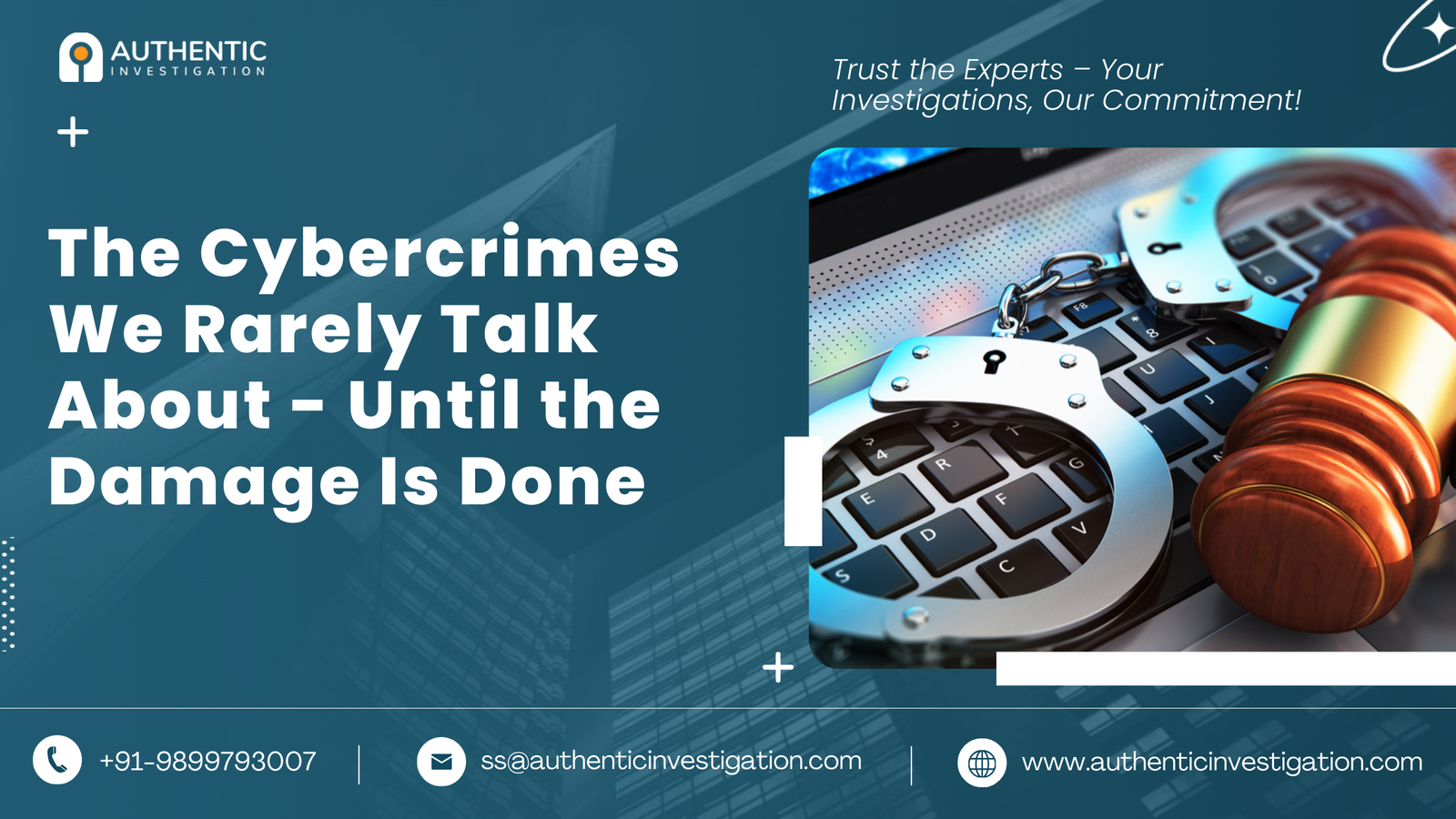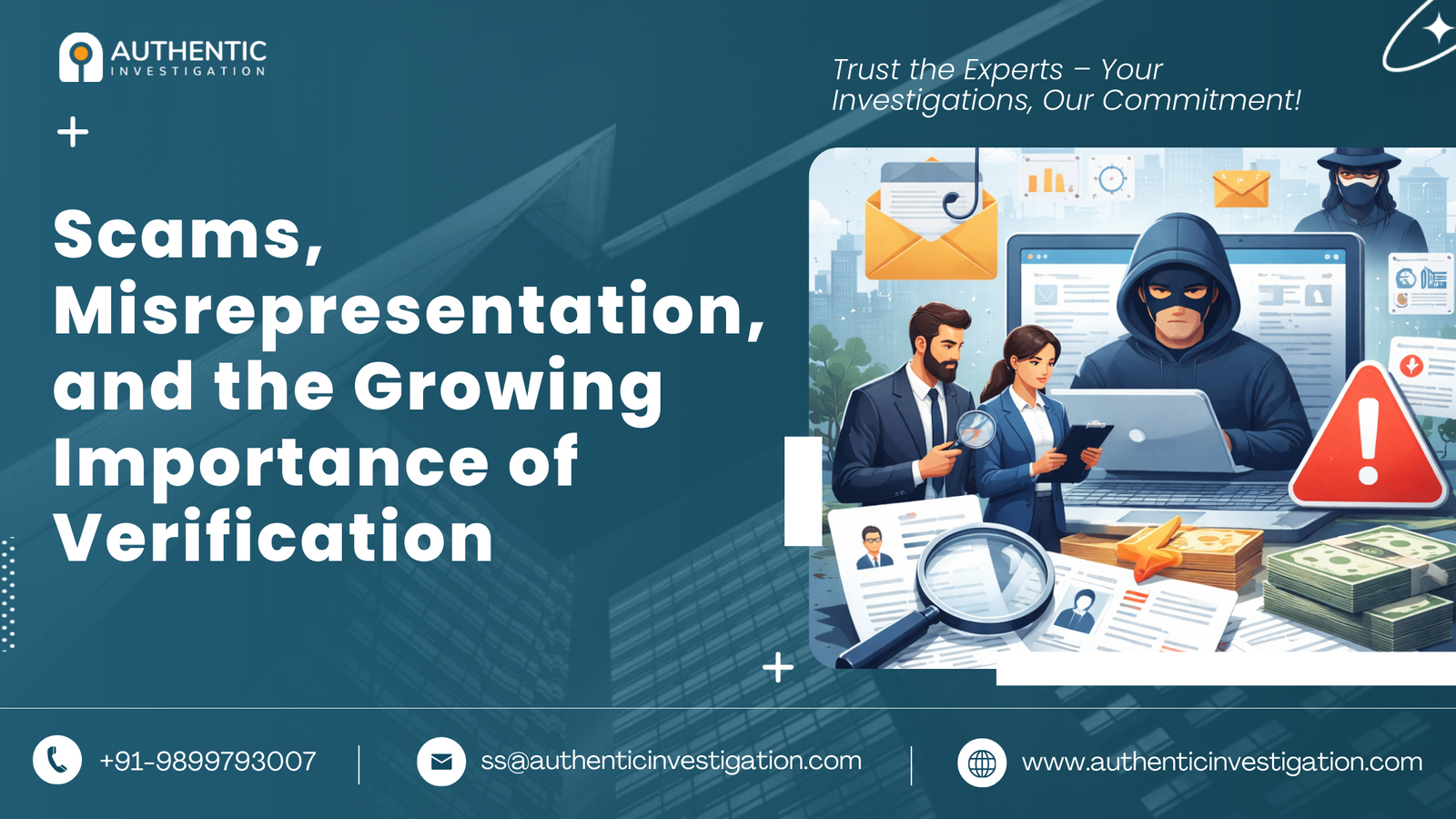
The Cybercrimes We Rarely Talk About – Until the Damage Is Done
How to choose the right risk advisory firm: due diligence, AI-enabled monitoring, cybersecurity, regulatory compliance, ERM and measurable ROI for growth today.
Selecting the appropriate Matrimonial Investigator represents one of the most crucial decisions during challenging personal circumstances. With the private investigation services market valued at USD 21.1 billion in 2025 and projected to reach USD 32.8 billion by 2035, the industry continues expanding rapidly. However, this growth brings both opportunities and challenges for individuals seeking specialized matrimonial investigation services.
The complexity of modern relationships, combined with digital evidence requirements and evolving legal standards, demands careful selection of qualified professionals. This comprehensive guide provides essential criteria, evaluation methods, and industry insights to help you make an informed decision when choosing a Matrimonial Investigator for your specific needs.
Understanding the selection process ensures you receive professional, ethical, and effective investigative services while protecting your privacy and achieving desired outcomes through proper legal channels.
Matrimonial investigation encompasses specialized detective services focused on relationship-related matters, including pre-matrimonial background verification, post-matrimonial infidelity investigations, asset discovery, and custody-related evidence gathering. These investigations require unique expertise combining traditional detective work with modern digital forensics capabilities.
According to recent industry analysis, matrimonial investigations represent a significant segment of private detective services, with demand increasing due to rising divorce rates and complex financial arrangements in modern marriages. The National Association of Legal Investigators reported that matrimonial cases comprise approximately 35% of private investigation workload in 2024.
Matrimonial Investigator specialists possess distinct qualifications beyond general private investigation training. These professionals understand family law requirements, evidence admissibility standards in divorce proceedings, and sensitive handling of personal information. Their expertise includes surveillance techniques for suspected infidelity, asset searches for hidden property, and digital evidence collection from social media and communication platforms.
Key differentiating factors include:
The private investigation industry demonstrates strong growth indicators, with employment of private detectives and investigators projected to grow 6% from 2024 to 2034, faster than average for all occupations. The Bureau of Labor Statistics reports 43,600 jobs in this field as of 2024, with median annual wages of $52,370.
Recent technological developments significantly impact matrimonial investigations. Digital forensics capabilities have expanded dramatically, with 2024 trends showing increased use of artificial intelligence for pattern recognition, advanced surveillance equipment, and sophisticated data recovery techniques. Social media analysis has become standard practice, with investigators monitoring multiple platforms for evidence collection.
Industry statistics reveal:
Selecting the optimal Matrimonial Investigator requires evaluating five essential factors that directly impact investigation quality, legal compliance, and successful outcomes. These factors serve as primary criteria for distinguishing qualified professionals from inadequate service providers.
Factor 1: Valid Licensing and Legal Compliance Most states require private investigators to maintain current licenses through regulatory agencies. Verify licensing status through official state databases and confirm compliance with local regulations. Licensed investigators understand legal boundaries, evidence admissibility requirements, and proper investigation procedures.
Factor 2: Specialized Matrimonial Investigation Experience Generic private investigators may lack specific expertise in matrimonial matters. Seek professionals with documented experience in relationship investigations, family law cases, and court testimony in matrimonial proceedings. Request case examples and success rates for similar investigations.
Factor 3: Technology Capabilities and Methodologies Modern matrimonial investigations require advanced technological tools including digital forensics equipment, surveillance technology, and data recovery systems. Evaluate investigators’ technical capabilities and methodology descriptions to ensure comprehensive investigation approaches.
Factor 4: Professional References and Reputation Established Matrimonial Investigator professionals maintain positive relationships with family law attorneys, previous clients, and industry associations. Request references from legal professionals and verify membership in recognized investigative organizations such as the National Association of Legal Investigators.
Factor 5: Transparent Communication and Reporting Practices Effective matrimonial investigations require clear communication protocols, regular progress updates, and detailed documentation. Evaluate investigators’ reporting standards, communication frequency, and evidence presentation methods to ensure professional service delivery.
Licensing requirements vary significantly across jurisdictions, with most states mandating specific education, training, and examination requirements for private investigators. According to current regulations, 43 states require licensing for private investigation services, with requirements ranging from high school diplomas to college degrees plus experience.
Essential credential verification steps:
Matrimonial Investigator expertise develops through practical experience handling relationship-specific investigations. Experienced professionals understand the emotional dynamics of matrimonial cases, legal evidence requirements, and effective investigation strategies for different scenarios.
Critical experience indicators include:
This systematic evaluation process ensures thorough assessment of potential Matrimonial Investigator candidates while maintaining confidentiality and making informed decisions based on objective criteria.
Step 1: Conduct Preliminary Research and Background Checks Begin with online research including website evaluation, professional profiles, and public records searches. Examine the investigator’s digital presence, published articles or case studies, and any media coverage. Verify basic business information including registration status, business address, and operational history.
Step 2: Verify Professional Licensing and Certifications Contact relevant state licensing agencies to confirm current license status, issuance dates, and any restrictions or disciplinary actions. Request copies of licenses and certifications, and verify continuing education compliance where required by state regulations.
Step 3: Review Professional References and Client Testimonials Contact provided references including attorneys, previous clients (with permission), and professional colleagues. Focus on specific questions about investigation quality, communication effectiveness, and ethical practices rather than general satisfaction inquiries.
Step 4: Evaluate Investigation Methodology and Technology Capabilities Request detailed descriptions of investigation approaches, evidence collection methods, and technology utilization. Assess digital forensics capabilities, surveillance equipment quality, and data security protocols to ensure comprehensive investigation services.
Step 5: Assess Communication Protocols and Reporting Standards Discuss communication preferences, progress update frequency, and final report formats. Review sample reports (with identifying information redacted) to evaluate documentation quality and evidence presentation standards.
Step 6: Analyze Cost Structure and Service Agreements Compare pricing structures among qualified candidates while avoiding lowest-cost selection without considering value factors. Evaluate service agreements for scope clarity, deliverable specifications, and payment terms that align with investigation requirements.
Step 7: Conduct Final Interview and Make Selection Decision Schedule comprehensive interviews with top candidates to assess professionalism, communication skills, and cultural fit for your specific situation. Make final selection based on combined evaluation criteria rather than single factors.
Contemporary matrimonial investigations integrate traditional surveillance methods with advanced digital forensics capabilities. The 2024 industry trends report indicates 78% of matrimonial cases now involve digital evidence collection, requiring investigators to maintain current technology expertise.
Modern Matrimonial Investigator professionals utilize sophisticated digital forensics tools for recovering deleted communications, analyzing social media activities, and tracking online behaviors. These techniques must comply with privacy laws and evidence admissibility standards while providing comprehensive digital evidence.
Key digital forensics capabilities include:
Evidence collection standards require:
Professional matrimonial investigations operate within strict legal boundaries while maintaining ethical standards that respect all parties’ rights. The National Association of Legal Investigators Code of Ethics provides guidance for professional conduct in sensitive investigations.
Legal compliance requirements include:
Matrimonial Investigator services typically charge $75-$125 per hour for standard investigations, with specialized services commanding $125-$400 per hour. According to 2024 industry data, complete matrimonial investigations range from $2,500-$15,000 depending on complexity, duration, and geographic scope.
Common fee structures include:
Quality matrimonial investigations provide significant value through evidence discovery that impacts legal proceedings, financial settlements, and custody arrangements. Professional investigations often recover hidden assets exceeding investigation costs or provide evidence crucial for favorable legal outcomes.
Value factors to consider:
Identifying unprofessional or unqualified Matrimonial Investigator candidates protects against poor outcomes, legal complications, and wasted resources. Common warning signs indicate inadequate training, ethical issues, or fraudulent practices.
Critical red flags include:
Additional warning indicators:
Q: How long does a typical matrimonial investigation take?
A: Most matrimonial investigations require 2-8 weeks depending on case complexity, evidence accessibility, and investigation scope. Simple background checks may complete within days, while comprehensive infidelity investigations often require 4-6 weeks for thorough documentation.
Q: What types of evidence can a matrimonial investigator legally collect?
A: Licensed investigators can legally collect publicly available information, conduct surveillance in public areas, perform background checks, analyze social media activities, and document observable behaviors. They cannot access private communications without consent or conduct illegal surveillance activities.
Q: How much should I expect to pay for matrimonial investigation services?
A: Costs vary based on investigation complexity, duration, and geographic location. Typical ranges include $75-$125 per hour for standard services, with complete investigations costing $2,500-$15,000. Specialized services like digital forensics may command premium rates of $125-$400 per hour.
Q: Can matrimonial investigation evidence be used in divorce proceedings?
A: Properly collected evidence by licensed investigators is generally admissible in family court proceedings. However, evidence must comply with legal collection standards, chain of custody requirements, and applicable privacy laws to ensure admissibility.
Q: What credentials should I look for in a matrimonial investigator?
A: Essential credentials include current state licensing, specialized matrimonial investigation experience, professional association memberships, relevant training certifications, and positive references from legal professionals and previous clients.
Choosing the right Matrimonial Investigator requires careful evaluation of professional credentials, specialized experience, technology capabilities, and ethical practices. The growing complexity of modern relationships and digital evidence requirements makes professional expertise increasingly valuable for achieving successful investigation outcomes.
The private investigation industry’s continued growth, with projected expansion to USD 32.8 billion by 2035, reflects increasing demand for specialized services including matrimonial investigations. However, this growth also necessitates careful selection processes to identify qualified professionals among expanding service options.
By following the systematic evaluation framework outlined in this guide, individuals can make informed decisions that protect their interests while ensuring professional, legal, and ethical investigation services. The investment in proper Matrimonial Investigator selection often proves valuable through enhanced evidence quality, legal compliance, and successful case resolution.
Contact Authentic Investigation today to discuss your matrimonial investigation needs with experienced professionals. Our team combines over 40 years of investigative expertise with modern technology and ethical practices to deliver comprehensive, confidential, and legally compliant matrimonial investigation services. We understand the sensitive nature of relationship matters and provide discrete, professional assistance throughout the investigation process.
Schedule a confidential consultation to learn how our specialized Matrimonial Investigator services can address your specific concerns while maintaining the highest standards of professionalism and legal compliance. Trust Authentic Investigation to provide the expertise and support you need during challenging personal circumstances.

How to choose the right risk advisory firm: due diligence, AI-enabled monitoring, cybersecurity, regulatory compliance, ERM and measurable ROI for growth today.

How to choose the right risk advisory firm: due diligence, AI-enabled monitoring, cybersecurity, regulatory compliance, ERM and measurable ROI for growth today.

How to choose the right risk advisory firm: due diligence, AI-enabled monitoring, cybersecurity, regulatory compliance, ERM and measurable ROI for growth today.